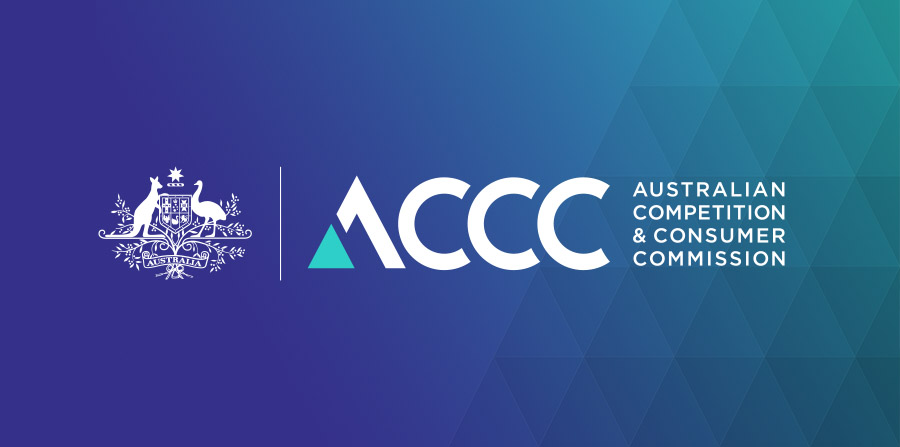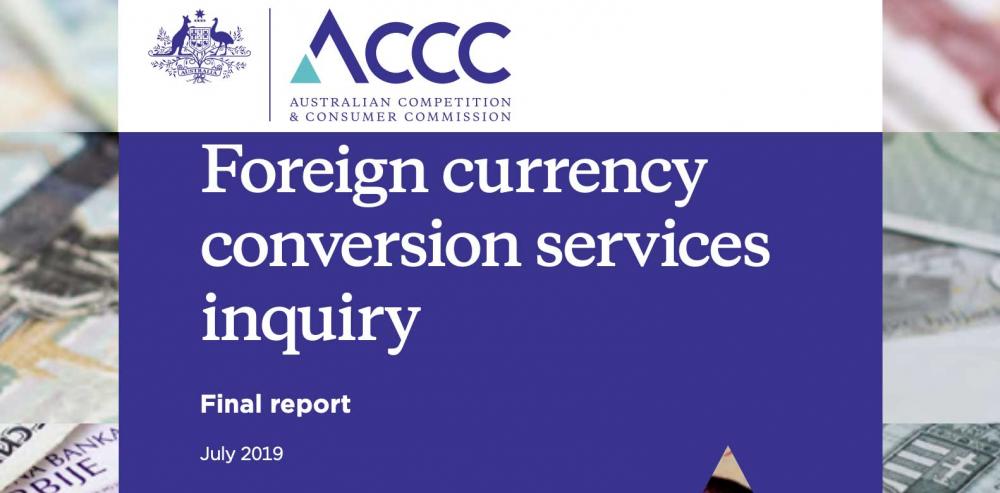Disruptors Challenging Australian Banks in Forex Price and Service: ACCC Report
Key Takeaways from the ACCC inquiry into currency conversion services. BestExchangeRates referenced among comparison sites playing an important role in customer awareness of the excessive currency margins charged by banks.

The Australian Competition and Consumer Commission’s inquiry into foreign currency conversion services confirms what many of us already know – new players are challenging the big four on rates and service.
Australians purchase more than AUD40 billion in foreign currency each year, but in many cases, it costs us a lot to do so by world standards. That’s partly because of the relatively high margins and fees of the big four banks compared with their non-bank competitors.
Based on ACCC estimates, individuals who used the big four banks to send international money transfers (IMTs) in USD and GBP during 2017-18 could have collectively saved about AUD150 million if they’d used the lowest-priced IMT supplier.
There are some encouraging signs that recent competition from new entrants is delivering better deals for consumers, but in its final report (made public in September 2019), the ACCC concluded that trend can’t be taken for granted. Its recommendations focus on A) attracting more competitors into the market and B) making it easier for consumers to understand the prices they pay for foreign exchange services.
Here are a few key takeaways from the final report:

1. It’s easy to pay too much for foreign currency
Australians often pay more than they need to for foreign currency. The ACCC advises consumers to shop around and not simply opt for their usual bank or an airport FX kiosk.
The ACCC found the big four banks to be “consistently more expensive” than some other suppliers of IMTs and foreign cash, noting that for major currencies such as the USD and GBP they were never cheapest. As an example, a consumer sending an IMT for USD7000 could save more than AUD500 by selecting the cheapest IMT supplier rather than the most expensive big four bank. And there was an AUD62 difference between the cheapest and the most expensive supplier for sending just USD200 to the US in mid-February 2019.
Consumers should be aware that alternative suppliers offer cheaper prices for these services.

The ACCC sees an important role for comparison websites, with BestExchangeRates.com referenced in table 3.2 of the report, to help consumers find the best services and suppliers, with most providing information on the retail exchange rate, fees and the total amount of foreign currency a customer would receive for a given transaction.
The ACCC said that comparison websites should disclose if commercial arrangements are in place with any service providers, including any commissions.
_Authors note: We agree. You’ll see that every BestExchangeRates page and each of our comparison tables carry a disclaimer that referral fees may be received if you choose one of the providers on our site, but this has no bearing on the exchange rates or the fees you are charged._
2. Prices Can Be Hard To Understand And/Or Misleading
Calculating the real cost of converting currency is tricky. Prices are difficult to compare because there are two components to transactions (the FX rate offered and fees) and they can be presented differently. Even the ACCC found it difficult to gather complete price information and expressed sympathy for consumers who just want to compare apples with apples.
Our inability to easily collate complete price information from publicly available sources demonstrates how difficult it is for consumers to compare total prices - ACCC
For payment cards, particularly when used for online purchases, unexpected international transaction fees can catch consumers off guard. For IMTs, the total price might not be known until correspondent banking fees (from when funds are in transit) are deducted, the ACCC noted. The regulator has called on all IMT suppliers to inform consumers of the total price of any transaction and provide online calculators.
3. Payment cards are generally cheaper than foreign cash, travel cards and international money transfers
The ACCC found that payment cards were generally cheaper than alternative methods for overseas purchases, and some institutions offer payment cards with no international transaction fees. For consumers who travel frequently or buy goods online from overseas, an international fee-free payment card could deliver significant savings.
4. Non-banks/new entrants are injecting competition to International Money Transfers
An estimated AUD21 billion in personal remittances, or IMTs, are sent from Australia annually. These kinds of payments aren’t easily substituted by other FX services and they are regularly used by vulnerable groups such as migrants and temporary workers.
The big four banks have not competed vigorously on price, possibly because they haven’t needed to in order to retain customers, and the ACCC noted their IMT prices were above, and "sometimes well above,” those of numerous non-bank competitors. But non-banks are competing more aggressively for customers and the big banks know it.
As one unidentified big bank put it in a 2017 document referenced by the ACCC:
Today these non-banks are providing superior speed, cheaper pricing and greater features than what has traditionally been offered by banks, thus providing a greater experience to their customers - A big bank!
One bank (also not named by the ACCC) identified high retail margins as a potential reputation risk. Although it subsequently reduced its margins, it still charged more for IMTs than some other suppliers.
By contrast, at least one non-bank supplier explicitly aimed to be the cheapest IMT supplier and at least two non-bank suppliers aimed to be “much cheaper” than the big four.
Indeed, OFX, CurrencyFair, InstaReM and TransferWise advertise their service as offering better retail exchange rates and lower fees than the big four, the ACCC said.
5. Banks aren’t the only secure option and they’re not always fastest
The ACCC said that consumers shouldn’t assume that banks are more secure than non-banks when it comes to international money transfers. It advised shoppers to ask suppliers about their security measures and whether they offer guarantees for IMTs.
6. The big four banks could crush non-bank competitors by withdrawing banking services
The ACCC is concerned that the big four banks could stifle burgeoning competition by denying rival non-bank FX currency conversion providers access to banking services. Indeed, some banks have withdrawn services citing compliance issues to do with anti-money laundering and counter-terrorism financing laws.
The ACCC has proposed a scheme be developed so that IMT suppliers can address the due diligence requirements of the banks. The government has backed this call and a new task force is to look at reform options that will encourage competition while ensuring compliance with anti-money laundering/counter-terrorism laws.
7. Next steps
The Government has come out strongly in support of the ACCC’s recommendations to increase competition and reduce fees. As mentioned above, it is establishing a task force to explore a workable due diligence scheme.
The ACCC is monitoring the uptake of its other recommendations and has published a guide for consumers on how to save money when using FX services. It has promised to take legal action where it finds businesses misleading consumers about the cost of FX services.
In particular, the ACCC is looking further into transactions where consumers who use payment cards, particularly for online transactions, are sometimes charged unexpected international transaction fees. Consumers who think they are shopping with an Australian website and paying in Australian dollars, sometimes later discover they have completed an international transaction. The ACCC wants merchants to display this information prominently and clearly.
The ACCC also is looking at the lack of certainty consumers face with regards to IMT and correspondent banking fees deducted while an IMT is in transit.
The BER team will continue to monitor and report on any progress in support of the ACCC’s recommendations. Here's a link to the final report: ACCC Foreign currency conversion services inquiry - final report
Disclaimer: Please note any provider recommendations, currency forecasts or any opinions of our authors should not be taken as a reference to buy or sell any financial product.